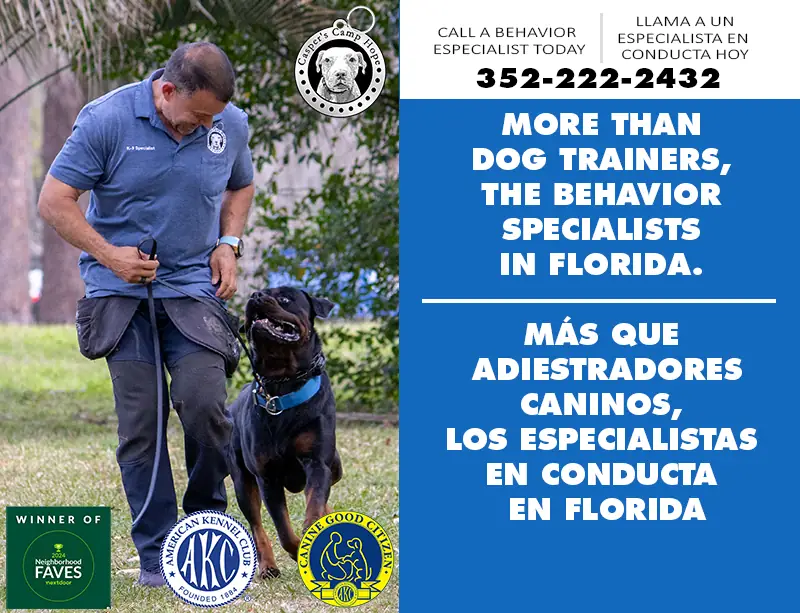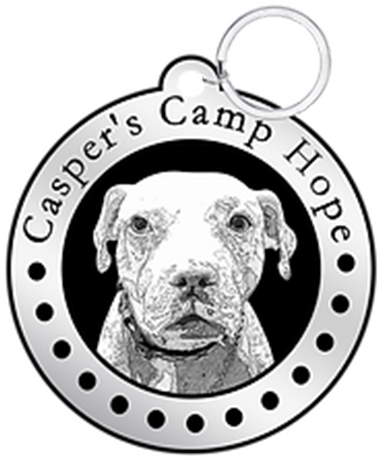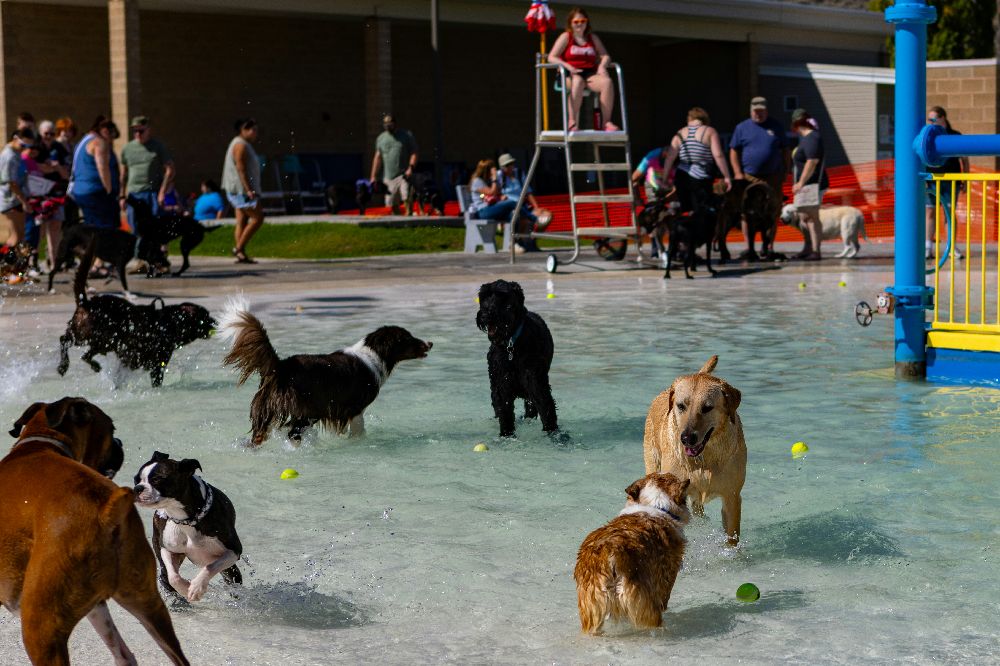
Wondering how to ensure your furry friend is safe and sound at a doggy daycare while you're busy? It all comes down to looking for top-notch safety measures, thorough behavior evaluations, and expert training. This guide dives into the must-haves—from required shots and staff-to-dog ratios to facility design, emergency plans, and advanced behavior assessments—all designed to keep your dog healthy and happy. You'll also discover how Casper’s Camp Hope goes the extra mile by blending professional training and rehabilitation to set a new standard for daycare safety.
What Are the Top Safety Standards for Gainesville Dog Daycare Facilities?
Setting the bar for safety in a dog daycare means having clear rules, proactive precautions, and constant supervision to keep risks at bay. A facility that nails health requirements, cleanliness, staffing levels, and emergency preparedness creates a secure haven where dogs can truly flourish.
What Vaccinations Are a Must for Safe Dog Daycare in Gainesville?
Most Gainesville doggy daycares require up-to-date core vaccines and the kennel cough vaccine to stop illnesses from spreading. Typically, this includes Rabies, Distemper/Parvo (DHPP/DAPP), and Bordetella, with many also asking for annual Canine Influenza boosters.
- Rabies: Protects against a deadly viral disease spread through bites.
- DHPP/DAPP: Shields your dog from distemper, hepatitis, parvovirus, and parainfluenza.
- Bordetella: Prevents outbreaks of kennel cough in group settings.
Keeping vaccination records current is key to protecting all the dogs and forms the foundation for every other safety measure.
Vaccination Essentials for Dog Daycare and Boarding
Top-tier dog daycare and boarding spots usually require essential vaccinations like Rabies and Distemper/Parvovirus (DHPP), plus non-core ones such as Bordetella and Canine Influenza. These shots are vital for preventing contagious diseases when dogs are in close contact, ensuring the health of every pet under their care.
This information directly backs up the article's focus on necessary vaccinations for safe dog daycare in Gainesville, explaining why each shot is important.
How Do Gainesville Daycares Keep Things Clean and Healthy?
A strict cleaning routine involves daily sanitizing, prompt waste removal, and regular deep cleans to halt the spread of germs. High-traffic play areas get a disinfectant treatment after every session, and bedding and bowls are washed or sterilized frequently.
- Staff disinfect floors and walls with EPA-approved cleaners after play sessions.
- Outdoor areas are hosed down and cleared of debris before the next group uses them.
- Air filtration systems refresh and purify the indoor air multiple times every hour.
Effective hygiene practices cut down on sickness, paving the way for smooth, healthy socialization.
What Are the Best Staff-to-Dog Ratios for Keeping a Close Eye?
Maintaining the right staff-to-dog ratio means staff can step in quickly and supervise consistently. Here’s a look at recommended supervision levels in Gainesville dog daycares:
| Staff-to-Dog Ratio | Supervision Style | Safety Advantage |
|---|---|---|
| 1:6 | Constant, direct attention | Immediate response to play cues or distress signals |
| 1:8 | Active, visible monitoring | Balanced oversight with proactive group management |
| 1:10 | Rotating checks | Efficient supervision for well-matched playgroups |
Aiming for ratios of 1:8 or lower offers the best safety while encouraging positive social interactions.
Recommended Staff-to-Dog Ratios for Great Daycare Supervision
Industry standards, like those from the Pet Care Services Association, suggest specific staff-to-dog ratios for effective supervision in dog daycares. While a general guideline might be around 1:15, a lower ratio, such as 1:10, is often better for more energetic groups, allowing staff to properly watch, engage with, and manage dog behavior, thus boosting safety.
This research supports the article's points on ideal staff-to-dog ratios and why they're crucial for a secure and well-supervised daycare environment.
How Are Emergencies and First Aid Handled at Daycares?
Daycare facilities ensure their staff are certified in canine first aid and have written emergency plans for injuries, sudden illnesses, or disasters. On-site first aid kits are stocked with essentials like bandages, antiseptics, and emergency contact information.
- Staff immediately assess the situation and provide basic first aid.
- The facility contacts the owner and, if necessary, takes the dog to a partner vet clinic.
- All incidents are recorded and reviewed to improve safety procedures.
Clear emergency plans protect dogs and give owners peace of mind.
How Does Evaluating a Dog's Behavior Boost Safety at Gainesville Daycares?
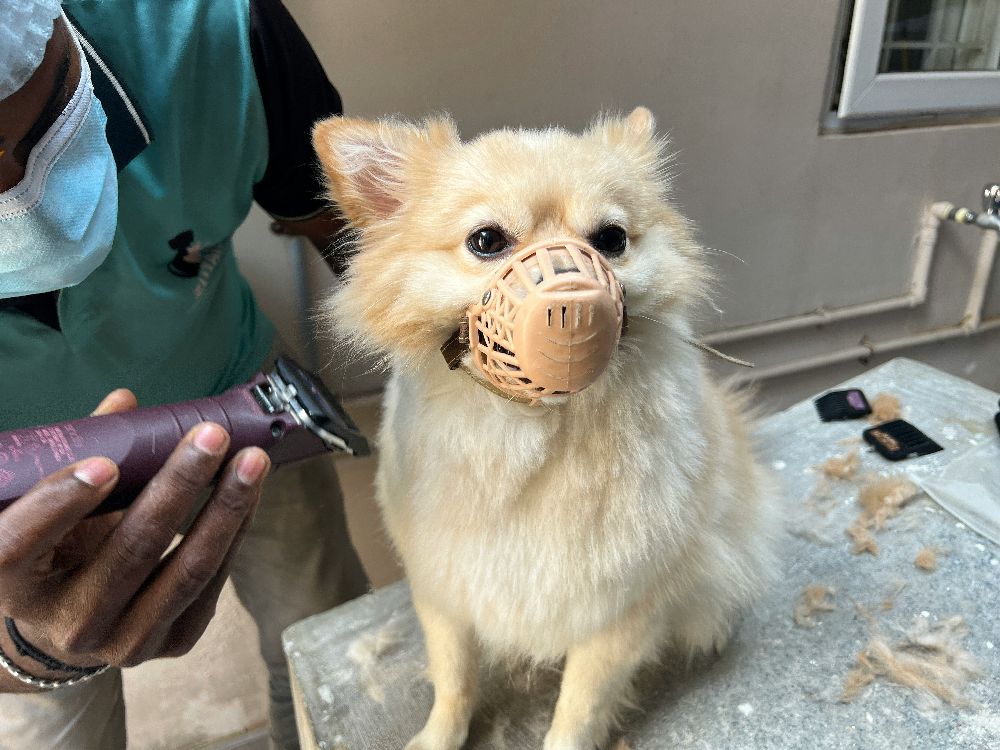
Careful behavior assessments help pinpoint a dog’s comfort levels, reducing stress triggers that can lead to fights or anxiety. By screening temperament and social skills, daycares can create balanced playgroups and prevent negative encounters.
What Is Temperament Testing and Why Is It So Important?
Temperament testing checks how a dog reacts to new people, noises, handling, and other dogs to identify potential risks. This involves controlled introductions, checks for noise sensitivity, and basic obedience exercises.
The information from temperament tests guides how dogs are placed in groups and how staff intervene, ensuring dogs are paired with suitable companions for relaxed interactions.
Why Temperament Testing is Key for Dog Daycare Safety
Temperament tests are vital assessments used by dog daycares to gauge a dog's behavior, personality, and comfort in a group setting. These tests help spot issues like aggression, anxiety, or fear, allowing staff to form compatible playgroups and ensure a safe, positive experience for all dogs.
This citation confirms the article's points about the necessity and process of temperament testing for improving safety and preventing negative interactions in dog daycare settings.
How Are Playgroups Formed to Prevent Aggression and Stress?
Playgroup matching considers a dog's size, energy, and social style to create safe group dynamics. Careful selection prevents mismatches that could lead to aggressive incidents.
- Dogs are grouped by age and how much exercise they need.
- Behavioral profiles help staff pair confident dogs with shy or nervous ones.
- Constant observation allows for immediate regrouping if signs of stress appear.
Well-designed playgroups reduce conflict and encourage positive socialization.
How Does Behavior Rehabilitation Help Create Safer Daycare Experiences?
Specialized rehabilitation programs tackle issues like leash reactivity, fear-based aggression, and separation anxiety, helping dogs adjust better to group settings. By reinforcing calm behavior and confidence, rehabilitation lowers the chances of problems occurring at daycare.
Dogs who complete structured behavior plans join playgroups with better impulse control and resilience, enhancing overall facility safety.
What Special Care Is Given to Anxious or Reactive Dogs?
Anxious or reactive dogs get one-on-one attention, desensitization exercises, and access to quiet areas to avoid overstimulation. Staff use positive reinforcement to build trust and gradually reintroduce social interactions.
Creating a personalized care plan for these dogs prevents issues from escalating, ensuring they have safe, controlled socialization experiences.
What Facility Design Elements Ensure a Secure and Safe Dog Daycare in Gainesville?
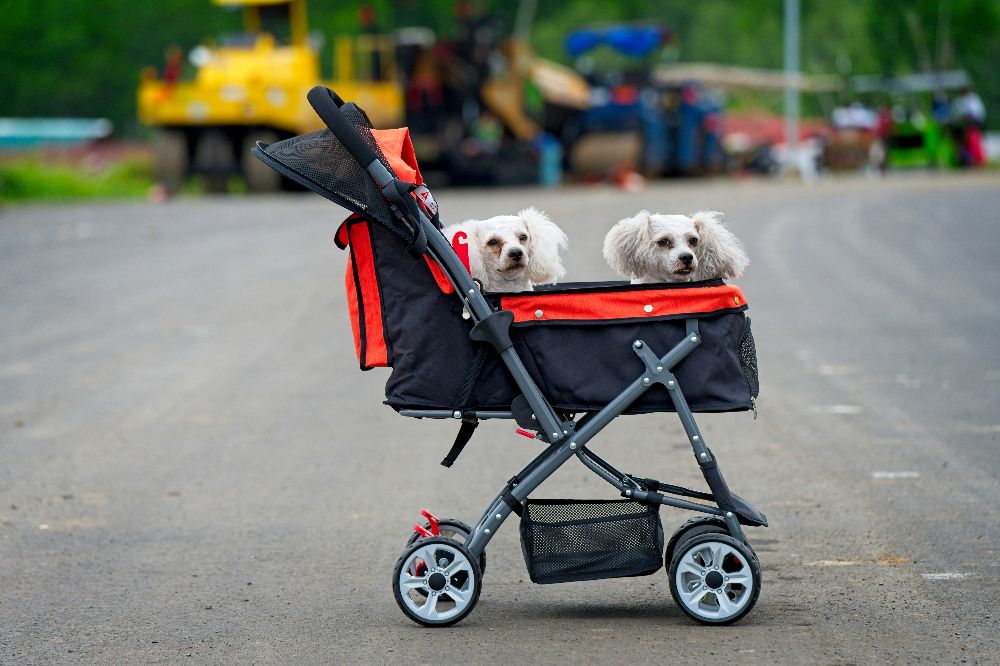
Smart facility design includes secure barriers, clear sightlines, and dedicated activity zones, offering both safety and enrichment. Well-planned spaces minimize the risk of escapes and keep playgroups contained.
How Do Indoor and Outdoor Play Areas Promote Safety?
Separate indoor and outdoor areas provide diverse environments for safe exercise and mental stimulation. Indoor spaces feature non-slip floors and soft barriers, while outdoor runs have shaded turf and good drainage.
- Indoor areas allow for supervised play year-round, protected from weather.
- Outdoor turf reduces stress on joints and is gentler than natural grass.
- Divided sections let staff rotate groups and maintain smaller, manageable cohorts.
Zoned play areas improve supervision and prevent overcrowding.
What Fencing and Containment Measures Are Necessary?
Strong fencing at least six feet high and reinforced gates prevent escapes and keep wildlife out. Secure latches and perimeter checks stop accidental exits.
Solid fencing and reliable locks keep dogs safely inside, allowing staff to focus on their well-being instead of security concerns.
How Are Cleaning Protocols and Air Filtration Used?
Advanced air filtration systems remove airborne germs, while scheduled deep cleaning tackles hidden contaminants. HVAC filters rated MERV-13 or higher circulate indoor air every 30 minutes.
- HEPA filters capture dust and allergens as small as 0.3 microns.
- UV-C light units neutralize bacteria and viruses in the ductwork.
- Wet mopping with veterinary-grade disinfectants complements air hygiene efforts.
Combining air and surface sanitation provides comprehensive protection against disease.
How Does Professional Dog Training Boost Daycare Safety and Preparedness?
Professional obedience and puppy training teach reliable commands and build confidence, which translates well to group settings, reducing misunderstandings and anxiety. Training instills impulse control, focus, and social skills that lead to safer play.
What Are the Advantages of Obedience and Puppy Training for Daycare?
Obedience training helps dogs reliably come when called, manage impulses, and walk nicely on a leash. Puppy classes focus on early socialization, positive reinforcement methods, and coping skills for new experiences.
- Better recall keeps dogs within supervised areas.
- Impulse control reduces chasing or bullying behaviors.
- Early socialization builds positive associations with other dogs.
A solid foundation in obedience prepares dogs for structured group environments.
How Does Training Reduce Behavioral Risks in Group Settings?
Training teaches dogs to respond to cues even with distractions, preventing situations from escalating during play. Commands like “leave it” and “settle” can de-escalate tense moments before they turn into aggression.
Tools like target mats and verbal cues reinforce calm behaviors, leading to smoother play transitions and fewer incidents.
How Does Casper’s Camp Hope Combine Training with Daycare Safety?
Casper’s Camp Hope integrates professional dog training and rehabilitation into every daycare plan, ensuring each dog arrives with standard commands and stress-management tools. Their team tracks progress in personalized training logs and adjusts group activities accordingly, showing a dedication to proactive safety and lasting behavior change. Discover more about these comprehensive services and how they enhance daily daycare routines.
What Health and Vaccination Protocols Are Crucial for Gainesville Dog Boarding and Daycare?
Thorough health protocols combine vaccination requirements, illness monitoring, and veterinary partnerships to protect canine communities. Consistent record-keeping and quick responses minimize issues and maintain well-being.
Which Vaccinations Protect Against Common Daycare Illnesses?
Here’s a look at the core and recommended vaccinations for group care:
| Vaccine | What It Protects Against | How Often It's Given |
|---|---|---|
| Rabies | Fatal viral encephalitis | Annually or every three years |
| DHPP/DAPP | Distemper, parvo, hepatitis | Every 1–3 years |
| Bordetella | Kennel cough | Twice a year |
| Canine Influenza | Respiratory flu strains | Annually |
Up-to-date vaccinations help break the chain of transmission and support herd immunity.
How Are Illness Prevention and Medication Handled?
Daycares perform daily wellness checks—monitoring eating, drinking, and activity levels—to catch early signs of illness. Medication protocols include secure storage, detailed dosage logs, and staff training for administering oral or injectable treatments.
A clear medication plan ensures timely administration and prevents dosage errors that could hinder recovery.
What Veterinary Partnerships Support Emergency and Regular Care?
Strong relationships with local veterinary clinics ensure priority access for urgent care and routine check-ups. Formal agreements outline transport procedures, how owners will be notified, and follow-up care after visits.
These partnerships provide seamless emergency response and continuity of care beyond the daycare facility.
What Questions Should Dog Owners Ask to Pick a Safe Gainesville Dog Daycare?
Choosing a daycare requires owners to do their homework on staff qualifications, facility features, and how transparent they are about their procedures. Asking the right questions ensures the daycare meets your dog’s specific needs and your safety expectations.
How Can You Confirm Staff Qualifications and Training?
Ask about canine first aid certifications, behavior management credentials, and ongoing training programs. Staff who have completed professional courses in canine behavior demonstrate a higher level of skill in preventing and handling incidents.
Verifying certifications confirms that the team has the expertise to manage health and behavior emergencies effectively.
What Facility Features Should You Check Out During a Visit?
Look at the condition of the fencing, the layout of play areas, cleaning stations, and rest spots. Check for visible security cameras, secure storage for cleaning supplies, and easily accessible hand-washing stations for staff.
Inspecting the physical aspects provides concrete proof of a facility’s commitment to safety and cleanliness.
How Is Information About Safety Protocols Shared?
A trustworthy daycare will provide detailed written policies on vaccination requirements, emergency procedures, and behavior assessment methods. Regular updates through online portals, daily reports, or photo feeds build owner confidence.
Clear communication channels keep owners informed and ensure accountability at all levels of care.
What Are the Benefits of Choosing Casper’s Camp Hope for Safe Dog Daycare in Gainesville?
Choosing Casper’s Camp Hope means combining expert training, behavioral rehabilitation, and community support with daily daycare activities. Their comprehensive approach enhances safety, socialization, and confidence for every dog.
How Does Casper’s Camp Hope Support Veterans and First Responders?
Understanding the special bond between service members and their dogs, Casper’s Camp Hope offers customized programs, flexible scheduling, and community discounts for veterans and first responders. This specialized approach acknowledges the stresses both handlers and dogs might face, promoting mutual well-being.
By honoring service commitments, the facility cultivates an atmosphere of respect and dedicated care.
What Specialized Behavioral Programs Improve Dog Safety?
From workshops for separation anxiety to plans for reducing reactivity, Casper’s Camp Hope creates custom behavior tracks that go beyond basic obedience. Their unique methods reinforce calm responses during group play, leading to fewer conflicts and more consistent social success.
These targeted programs transform challenging behaviors into positive daycare experiences.
How Can Owners Sign Up or Book a Safety Consultation?
To enroll your dog or schedule a free safety consultation, visit the Casper’s Camp Hope website or call the front desk. A personalized intake session will review your dog’s history, health records, and temperament profile to create an ideal care and training plan.
Taking this first step ensures your dog enjoys a structured, supervised, and fun daycare routine.
Your dog’s safety and happiness deserve the highest level of care. By confirming strict health protocols, certified staff, secure facilities, behavior-focused group management, and integrated training, you can choose a Gainesville doggy daycare that truly prioritizes your companion’s health and joy. Consider Casper’s Camp Hope’s foundation in professional training and rehabilitation to give your dog the confidence and skills for safe, fulfilling social play.
